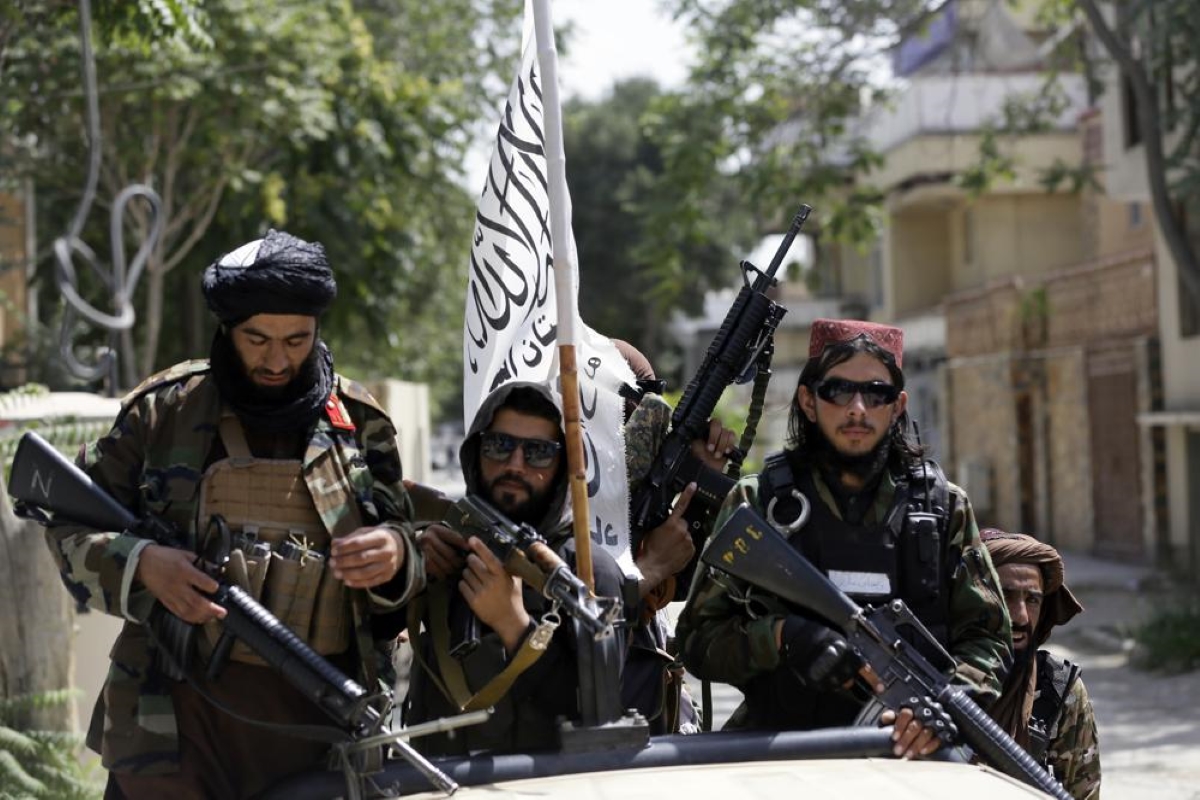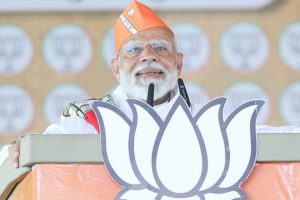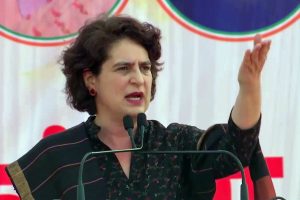Afghan protesters have shown exemplary courage defying the Taliban for the second day, waving their national flag in motley demonstrations which were met with fierce reprisal from the militants.
Taliban responded rapidly to dissent as many fear that the militants will succeed in obliterating progress in women’s and human rights made in two decades.
A UN official warned of dire food shortages in this nation of 38 million people reliant on imports and experts said the country was severely short on cash, highlighting that the Taliban face the same problems as the civilian government they dethroned without the level of international aid it enjoyed.
On Thursday, a procession of cars and people near Kabul’s airport carried long black, red and green banners in honor of the Afghan flag. At another protest in Nangarhar province, video posted online showed one demonstrator with a gunshot wound bleeding, as onlookers tried to carry him away.
In Khost province, Taliban authorities instituted a 24-hour curfew on Thursday after violently breaking up another protest, according to information obtained by journalists monitoring from abroad. The militants did not immediately acknowledge the demonstration or the curfew.
At that rally, in the eastern city of Jalalabad, demonstrators lowered the Taliban’s flag and replace it with Afghanistan’s tricolor. At least one person was killed.
Meanwhile, opposition figures gathering in the last area of the country not under Taliban rule talked of launching an armed resistance under the banner of the Northern Alliance, which allied with the US during the 2001 invasion.
The Taliban so far have offered no specifics on how they will lead, other than to say they will be guided by Shariah, or Islamic, law.
“A humanitarian crisis of incredible proportions is unfolding before our eyes,” warned Mary Ellen McGroarty, the head of the U.N.’s World Food Program in Afghanistan. Beyond the difficulties of importing food, she said that drought has seen over 40% of the country’s crop lost. Many who fled the Taliban advance now live in parks and open spaces in Kabul.
“This is really Afghanistan’s hour of greatest need, and we urge the international community to stand by the Afghan people at this time,” she said.
Hafiz Ahmad, a shopkeeper in Kabul, said some food has flowed into the capital, but prices have gone up. “It is better to have it,” he said. “If there were nothing, then that would be even worse.”
Two of Afghanistan’s key border crossings with Pakistan, Torkham near Jalalabad and Chaman near Spin Boldak, are now open for trade. Hundreds of trucks have passed through, Pakistani Interior Minister Sheikh Rashid Ahmed has said. However, traders still fear insecurity on the roads and confusion over customs duties that could push them to price their goods higher.
At Kabul’s international airport, military evacuation flights continued, according to flight-tracking data. However, access to the airport remained difficult. On Thursday, Taliban militants fired into the air to try to control the crowds gathered at the airport’s blast walls. Men, women and children fled. Fighter jets later roared overhead, but no airstrike accompanied their pass.
Overnight, President Joe Biden said that he was committed to keeping U.S. troops in Afghanistan until every American is evacuated, even if that means maintaining a military presence there beyond his 31 August deadline for withdrawal.
Indirectly acknowledging the resistance they face, the Taliban on Thursday asked preachers to urge congregants to remain in the country and counter “negative propaganda” against them.
The Taliban have also urged people to return to work, but most government officials remain in hiding or are themselves attempting to flee.
Questions remain over Afghanistan’s $9 billion in foreign reserves, the vast majority now apparently frozen in the U.S. The International Monetary Fund, meanwhile, said the militants for now would not be allowed to access loans or other resources.
The head of the country’s Central Bank warned that the supply of physical U.S. dollars is “close to zero,” which will batter the currency, the afghani, and raise the prices of much-needed food.
There has been no armed opposition to the Taliban. But videos from the Panjshir Valley north of Kabul, a stronghold of the Northern Alliance militias that allied with the US during the 2001 invasion of Afghanistan, appear to show potential opposition figures gathering there. That area is in the only province that has not fallen to the Taliban.
Those figures include members of the deposed government — Vice President Amrullah Saleh, who asserted on Twitter that he is the country’s rightful president, and Defense Minister Gen. Bismillah Mohammadi — as well as Ahmad Massoud, the son of the slain Northern Alliance leader Ahmad Shah Massoud.











